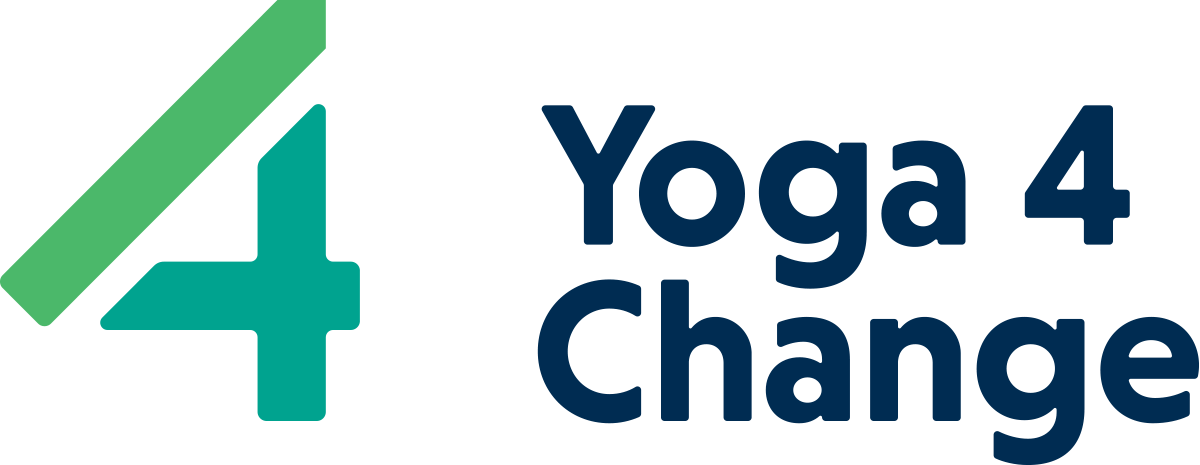Evidence-Based Yoga Curriculum: An Interview with Dr. Danielle Rousseau
Dr. Danielle Rousseau is Yoga 4 Change’s Director of Research and Evaluation. Her role with the organization is to tell the story of all the work Yoga 4 Change does through empirical data and her goal is to gather quantitative and qualitative data from the yoga classes in order to reflect the positive impacts this programing can have on the individuals Yoga 4 Change serves.
“My role is to support the work of Yoga 4 Change and tell that story in a way that is
evidence-based and also gets at the experiential piece of it”
Yoga 4 Change achieves lasting, demonstrative change for veterans, individuals who are experiencing incarceration, youths, and people living with mental health conditions through an evidence-based approach that allows the organization to improve and strengthen their yoga curriculum. Since the beginning, Yoga 4 Change has been committed to continuously collecting good data to show the impactful changes of their mindfulness trauma-informed yoga practice.
“We’re always changing and shifting based on the evidence we’re getting in from the populations we serve and from initial development on; we’re also looking outside to the literature that already exists”
Yoga 4 Change has its own curriculum specifically for Yoga 4 change classes, which is informed by a trauma-informed practice. To continuously develop this curriculum to be most effective for the organizations targeted populations, Yoga 4 Change not only reflects on the data that they’ve gathered from their programming, but also look at data gathered from other agencies that offer a trauma-informed practice. They keep up with current published research literature on mindfulness activities, general trauma-informed resources such as talk therapy, and specific practices related to trauma-informed yoga.
“There were originally two curricula that were used, then we developed a new curriculum, and then we fine-tuned that based on outcome and results. Programming is always being shifted, modified, and improved based on what we’re finding, which is in many ways unique to
Yoga 4 Change”
Staying informed about existing literature and the results from their own practices helps in offering support to the yoga instructors. Yoga 4 Change instructors are offered ongoing education and training to improve the class teachings.
“It [Yoga 4 Changes research] impacts our training, so how the yoga teachers are being trained and how we integrate trauma-informed approaches and just the way classes are structured and thinking intentionally about the language we’re using in classes, a lot of that comes from the results of the ongoing research”
Yoga 4 Change research includes gathering data from their general programing classes at the different facilities they work with, but also includes gathering data from more intensive research studies that look at specific groups of people and how the Yoga 4 Change curriculum can make an impact. Currently, there are ongoing intensive research studies implementing an opioid related intervention. In South Florida, Tampa, and Orlando this study is being conducted with individuals in recovery from substance use disorders and opioid use. In Jacksonville, the impact of programming at Behavioral Health Facilities, and programs in collaboration with the 4th Judicial Court System in Duval County, are being studied through the lens of substance use disorder and opioid use, as well.
Note: 2019-2021 findings can be found in the home page of the Yoga 4 change website (y4c.org/home) The South Florida, Tampa, and Orlando reports are seen under the “Florida Blue Final Report.” The Jacksonville reports can be seen under “Overdoes 2 Action Grant x2”
Within their own research, Yoga 4 Change measures the changes the participants experience through data collected on mood, stress and physical pain levels via notecards before and after each class. Within intensive research studies there are pre- and post-surveys at each facility taken by participants before they start the programming and then again when they’ve completed the program. The surveys are designed to collect extensive data on participants general health and wellness with questions related to emotional awareness, emotional regulation, healthy coping skills, sleep and more. All this information increases the awareness around the impactful changes the Yoga 4 Change curriculum has on participants general health, as well as offers an opportunity for improvement and growth for the implementation of the program.
The qualitive and quantitative data being gathered is used to help show the measurement of change, and offers an understanding of the experiential component. To be able to gather this data, the curriculum was a co-creative, co-collaborative development process to bring in varying experiential knowledge of yoga practice.
“We had a whole curricula team, and the team was made up of researchers, yoga teachers, individuals in recovery, individuals who had been incarcerated, so we really tried to represent all the individuals who might have stake in this and worked together collaboratively, as a team, to develop and create the curricula and all components of that.”
Blog post by Bianca Centeno
